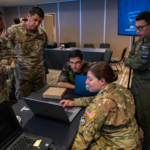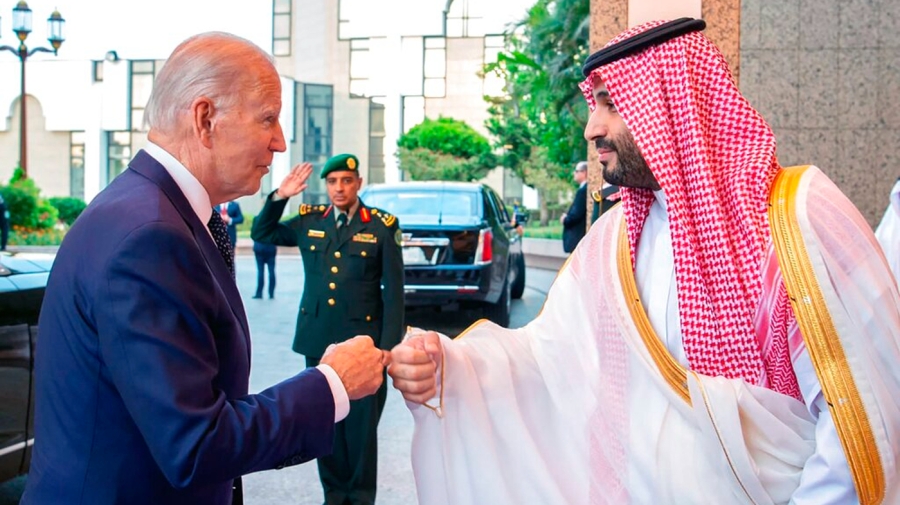Just In | The Hill
America’s current Middle East policy arose following the 1979 Iranian revolution and Lebanon’s civil war. These seismic events convinced policymakers that Washington’s interests were best served by stability (tamping down conflicts to ensure a steady flow of oil) and containment (bottling up radicals in Tehran and Beirut to prevent the spread of their burn-the-village-to save-the-village ideologies). For more than 40 years, this policy — with notable exceptions — has served us well. Oil flowed freely, Iran’s hegemonic ambitions largely were thwarted, and most in the region rejected sectarian mayhem as a means of settling societal scores.
While the 1987-88 tanker war, Tehran’s suborning of Lebanon and Shia populations elsewhere, and more recently, the global war on terror have underscored the policy’s limitations, Washington’s approach to dealing with the Middle East has proven remarkably durable, and few decision-makers today appear eager to tamper with what they see as a winning formula. But, as I outline below, tamper they must. Widening cracks in the foundation mean building a new policy that meets current and future regional challenges, one drawing strength from a robust partnership with Saudi Arabia.
Shifting ground
Our approach to the Middle East has been predicated on unstinting support for Israel. As Iran spun away from the U.S. orbit, Israel emerged as an ally that reflected American values and through which policymakers in Washington sought to advance U.S. regional goals. The alliance came at a cost — Arabs resented what they perceived as Jewish chauvinism and Muslims wondered why their venerable Abrahamic monotheism was left out of the cozy Judeo-Christian entente — but it facilitated both stability (or a semblance thereof) and containment (ditto). Whether Israel consistently has reflected American values is an open question, one worth asking as Prime Minister-designate Benjamin Netanyahu launches what promises to be the most reactionary government in his country’s history.
Indeed, concerns about Israel’s direction could prod Washington to consider “refining” U.S. policy in the Middle East. Unfortunately, by focusing on this piece of the puzzle, they risk missing the big picture: The ground again has shifted, seismically. Israel no longer is an island of stability in an otherwise chaotic region. Even apart from the oil wealth that fills Gulf coffers, much of the Middle East has witnessed improved standards of living and concomitant rising expectations.
The World Bank expects the region’s economies to post 5.5 percent growth this year, the fastest rate since 2016, and 3.5 percent growth next year. The Arab Spring’s failure to usher in a democratic transformation notwithstanding, most Middle Easterners reside in peaceful societies that boast low crime rates. Despite the pandemic, as well as educational and employment challenges, a solid majority of Arab youths surveyed last year expressed optimism about their futures.
Indispensable partner
Israel, of course, will remain an important anchor of U.S. policy, but the region’s trajectory through the coming year and beyond will require Washington to secure its interests with more than just one linchpin. Arab and Muslim aspirations cannot be addressed, or harnessed, through Tel Aviv. Intense Israel-Iran antipathy makes it highly unlikely the Jewish state can play a constructive role in helping the United States take maximum advantage of the Islamic Republic’s inevitable implosion.
Saudi Arabia, the largest Gulf state and custodian of Islam’s two holiest sites, is the obvious candidate to help carry Washington’s water. The Kingdom long has had a robust defense relationship with the United States and U.S. and Saudi officials for decades have strived to maintain comity in the face of periodic differences and dustups that threatened to undermine bilateral ties. Indeed, after Israel, Saudi Arabia stands as our most-indispensable Middle Eastern partner. So, one might ask, if working with Riyadh represents such an obvious slam-dunk, why hasn’t Washington seized the ball and driven down the court?
Answer, and question
The answer is values. Happy to cooperate with the Kingdom privately, U.S. officials are loath to do so publicly because of the widespread perception that Saudi Arabia is just too different. It is a monarchy, and we are a republic. It cloisters women (albeit less so than before) and we celebrate their liberty. It punishes dissent; we champion freedom of expression. It hearkens to arch-conservative social mores, and we let it all hang out.
The question also is values. More specifically, do they really matter as much as we think they do? Policymakers in Washington have no apparent difficulty tolerating what human rights groups say is Israel’s brutal treatment of the Palestinians, but they become positively apoplectic concerning the Kingdom’s rights record.
Childhood’s end
It is high time to dispense with such puerile thinking. Handwringing about remaking allies in our image retards our ability to consider clearly how best to achieve lasting security. International relations is a deadly serious game played for keeps, and we would do well to listen to Otto von Bismarck instead of Oprah. Friends make us feel good, partners help us get things done, and —mais oui! — it is lovely when a country like the United Kingdom can fill both roles.
But when we need help — and there is no doubt we do in the Middle East — it hardly matters whether we admire the party rendering assistance or how much they resemble us. We must be mature enough to recognize that, when it comes to advancing our interests, our enemies’ enemy is our friend. The White House should extend its hand to Riyadh. It should dispense with notions of pride and face and say to the Kingdom, “Come, work with us on finding a path forward through the challenges that lie ahead.”
I propose three steps forward:
Invite de facto ruler Crown Prince Mohammed bin Salman to Washington for a strategy summit with President Biden. Would this provoke a media firestorm and partisan cries of hypocrisy? Of course, but the juice — gaining Saudi help in a range of issues from quashing Sunni extremism to engineering a soft landing for the Iranian regime’s successor — will be well worth the squeeze.
Encourage bilateral investment. Despite the current oil-price windfall, the Kingdom faces serious economic challenges (including towering unemployment among the aforementioned high-expectations youth) that U.S. private-sector innovation can help it to overcome.
Facilitate people-to-people exchanges. Few things are more impactful on hearts and minds than personal encounters revealing our shared humanity.
Reducing barriers to Saudi students and helping U.S. universities to open campuses in the Kingdom will create a cadre of future U.S. and Saudi leaders with an intimate appreciation of what “the other” brings to table.
The time is now
Among the lessons U.S. policymakers drew from Iran in 1979 and Lebanon in the 1980s was the danger of hubris. Ours is the most powerful nation the world has ever seen, but we imperil ourselves by confusing might with omnipotence. In a region as fraught and complex as the Middle East, there is no shame in recognizing we need help in securing our interests.
Saudi Arabia’s centrality — geographically, politically, socially and economically — make it uniquely positioned to render assistance. The Biden administration should treat the Kingdom as a partner, not a gas station or a piggy bank, to anchor it firmly in our camp and to influence it with our values. With White House missteps leading Riyadh to question Washington’s commitment to Saudi security, and to the region more generally, now is the time to act. Failure to do so would be tantamount to pushing Riyadh into Beijing’s and/or Moscow’s embrace, where it can do us no good — and potentially a lot of harm.
Cam Burks is a senior fellow at George Mason University’s National Security Institute. He is a corporate global security executive, previously serving in chief security officer and enterprise, geopolitical strategy leadership positions at Chevron Corporation and Adobe. He served for nearly 15 years in the Foreign Service as a special agent and American Embassy Regional Security Officer with the U.S. State Department’s Diplomatic Security Service. He is a network affiliate at Stanford University’s Center for International Security and Cooperation.
National Security, Opinion Read More
Author Profile
Latest entries
 ScienceOctober 23, 2024American teens feel pressure in 6 areas of life
ScienceOctober 23, 2024American teens feel pressure in 6 areas of life ScienceOctober 23, 2024How guilt and shame control environmental decisions
ScienceOctober 23, 2024How guilt and shame control environmental decisions HeadlinesOctober 23, 2024WNBA champion Diana Taurasi continues to mull possible return next season: 'I think about it every day'
HeadlinesOctober 23, 2024WNBA champion Diana Taurasi continues to mull possible return next season: 'I think about it every day' ScienceOctober 22, 2024Space Force refining commercial backup plan for military satellites
ScienceOctober 22, 2024Space Force refining commercial backup plan for military satellites

